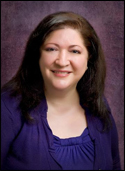

Mitra Rashidian,
Ph.D., LMFT, ACS
Upcoming Events
Chapter News
Barbara Calvi,
President
Read
Shawn LaRé Brinkley,
Editor
Read
April 2017
Membership Meeting
Review
Contributing Articles
from Members
and Friends
Charlyne Gelt
Cinema Therapy
Read
Natalie Jambazian
Best Practices
Read
Monica McGarva
Member Profile
Read
Our Sponsors and
e-Blast Advertisers
Read
Contact Us
Read
April Membership Meeting Write-Up by Barbara Calvi, LMFT
Barriers to Multi-cultural Sex Therapy: What Therapists Need to Know
with Mitra Rashidian, Ph.D., LMFT, ACS
Sponsored by Balance Treatment Center
The meeting was sponsored by Balance Treatment Center, www.balancetreatment.com, 855.414.8100. Peacefully hidden away in the Santa Monica Mountains, Balance Treatment Center, offers treatment against a tranquil luxurious backdrop ideal for healing, for clients struggling with a variety of emotional and psychological issues. They provide intensive outpatient services and group therapy, as well as luxury residential rehabilitation services, to address the needs of clients struggling with mental health, dual diagnosis, and substance abuse. Jennifer Rogge, LMFT, IOP Program Director, and Tim Morrow, Director of Strategic Development were present to describe their programs, answer questions, and provide literature about their comprehensive services.
In her talk, Barriers to Multi-Cultural Sex Therapy: What Therapists Need to Know, Mitra Rashidian, Ph.D., spoke expertly and eloquently on the subject of sex therapy and what impedes effective sex therapy for many therapists in their work with couples.
After providing a look at sex therapy through historical and multi-cultural lenses, Dr. Rashidian provided a thorough examination of human sexuality from a bio-psycho-social perspective that included exploration of an anthropological perspective in terms of gender normativity in various cultures.
She also discussed the myriad of ways that human sexuality can be experienced and expressed: through thoughts, desires, attitudes, behaviors, roles, fantasies, beliefs, values, practices, and relationships.
In fact, cultural, family, and religious messages make it essential everyone scrutinize their own biases and attitudes about sex when treating clients, because it is these very biases and attitudes which prevent many therapists from ever asking about a client's sexual life, as shown by current research.
Dr. Rashidian stated that the therapist's knowledge, self-awareness, and skills are the three essential domains of cultural competence in multi-cultural sex therapy. It is also essential that the therapist's knowledge includes intersectionality (how multiple dimensions of power such as race, sexual, and religious affiliation interact with each other and affect, individuals, couples, families, and communities).
Because of the complex relationship people have with sex; and their ambivalence toward it, and because of lack of information, myths, misconceptions, and often messages about sex, sexuality and shame; it is critical that therapists begin to question their own attitudes, biases, and possible lack of information in this area in order to ensure they are providing the best and most appropriate treatment for client's struggling with sexual issues.
Their lack of knowledge also contributes to the reluctance to include a sexual history in the clinician's intake. Yet, Dr. Rashidian says that it is important to take a sexual history as early as possible with a client. In order to get as much relevant information as possible, Dr. Rashidian recommends starting with taking a psycho-sexual history, including inquiry into unwanted childhood sexual experiences; exploration of current relationship problems, including lack of trust, hostile behavior and difficulty communicating about sex between partners; and finally, socio-cultural issues, including shame that the client experiences in relationship to any sexual activity, thoughts, attitudes, past experiences, etc. She also discussed the importance of integrating cognitive behavioral and systems therapies for treatment of some disorders including Female Sexual Arousal Disorder.
Dr. Rashadian's expertise in the field was apparent as she took questions from members and provided clarification and clear understanding for the audience relative to this all to often dismissed topic. After this presentation, the clinicians in the room were able to walk away with a better understanding of how to broach the subject of sex with clients and sound information to draw from as the discussion ensues. And of course, there is always the option to call on Dr. Mitra for a consult.
Mitra Rashidian is a Certified Sexologist and a Licensed Marriage and Family Therapist in full-time private practice located in Encino, California. She works with couples' and individual's sexual interests, behaviors, functions, feelings, and interactions; she specializes in the treatment of female sexuality, sexual disorders, and the impact of co-dependency, sexual trauma, and eating disorders on the development of the sexual self-concept of women in marginalized and mainstream populations. She holds a Ph.D. in Counseling and has been conducting her research on Sexual Health and Mental Well-being since 2005. Her research interests include conducting qualitative and quantitative studies in sexology, women's studies, culture, gender, female sexual self-concept, acculturation, and migration's impact on female sexuality. She has been published in scholarly journals and has presented both nationally and internationally in numerous scientific conferences over the past 10 years such as: American Counseling Association, Canadian-American Counseling Association, Ewha Woman's University in Korea, World Congress For Sexual Health in United Kingdom, and the University of New England in Australia.